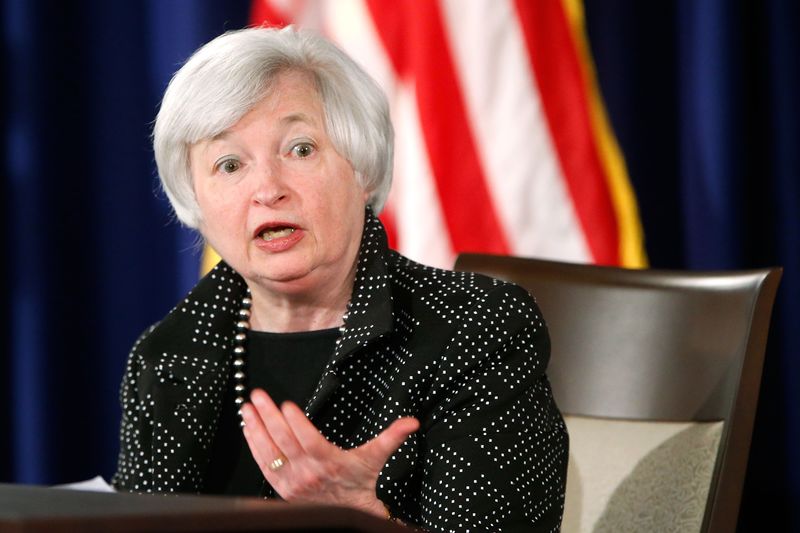Investing.com – As investors reacted on Friday to the U.K.’s surprise decision to leave the European Union (EU), known as a Brexit, financial markets took the possibility of a rate hike by the Federal Reserve (Fed) in 2016 off the table and begin to price in the possibility of the U.S. central bank cutting the price of money.
After 52% of British citizens voted for a Brexit, market participants sold off global equities and riskier assets and moved investments to safe havens such as bonds, gold or the yen.
On Thursday prior to the U.K. referendum, Fed fund futures had shown the probability for a rate hike at the December meeting, with odds of 57.3%, according to CME Group’s FedWatch tool.
However, Friday saw those odds tumble with only an 18.2% chance.
Moreover, they began to price in the possibility of a 25 basis point cut as soon as the July 27 decision at 4.8%.
In general terms, the July meeting still puts odds for the Fed to remain steady at 95.2% with them only dropping to 76.5% for the February 1, 2017 decision.
So far on Friday, the only comment from the Fed came in the form of a published statement on their website.
“The Federal Reserve is carefully monitoring developments in global financial markets, in cooperation with other central banks, following the results of the U.K. referendum on membership in the European Union,” the monetary authority said in a statement.
“The Federal Reserve is prepared to provide dollar liquidity through its existing swap lines with central banks, as necessary, to address pressures in global funding markets, which could have adverse implications for the U.S. economy,” it added.
Fed chair Janet Yellen has no regularly scheduled appoints until Wednesday, June 29 when she will attend the ECB forum on central banking, which may be the first time for her to reveal how the Brexit vote has affected her stance on monetary policy.
The first member of the U.S. central bank scheduled to speak after Britain’s decision will be Fed Governor Jerome Powell.
Powell could give indications on the Fed’s stance in reaction to the vote in a speech given on Tuesday, June 28, titled “Interest and Influence: Central Banks and the Global Economic Outlook”.
